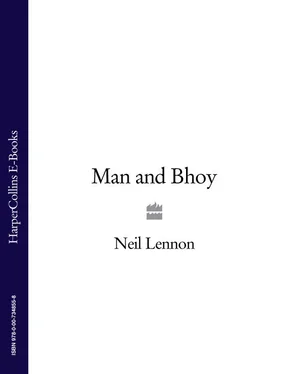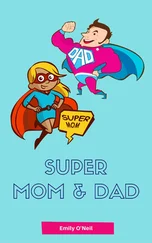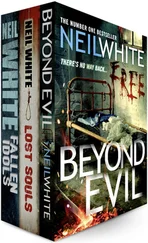I, on the other hand, was the antithesis of what some ‘fans’ stood for in a sectarian time. There had been warnings in various newspapers that my move to Celtic could earn me some serious grief when I played for Northern Ireland, so I wasn’t entirely taken aback, but nothing could have prepared me for the sheer scale of what happened before and during that match against Norway.
A few days before the game, my mother and father at home in Lurgan were appalled to learn from journalists that the words ‘Neil Lennon RIP’ had been scrawled on a wall in the town of Lisburn. Someone was saying that I was going to be a dead man.
It was a terrible shock to my family who are quiet-living and fundamentally decent Christian people. My father Gerry had not been well and was to suffer a heart attack in August 2001. He, my mother Ursula and the rest of my family were deeply upset by what some moron undoubtedly thought was a sick joke—or maybe in light of subsequent events, he or she meant it as a shot across my bows, a warning of worse to come. And indeed worse, much worse, did come my way as I joined my colleagues of different religions and none at all to play for my country against Norway.
From the moment I went onto that pitch to play in the green and white colours of Northern Ireland I was the target of an unremitting chorus of boos, jeers, catcalls and insults. In a half-empty stadium, the noise seemed to amplify and at times it seemed as though it was the only sound to be heard.
I had anticipated the odd jibe from individuals in the crowd or on the streets, but nothing prepared me for the extent of the hatred I faced. Deep down, it was the sheer scale of things which upset me.
Prior to the game, the graffiti incident became known and there were some rumours about threats to me. The Irish FA and manager Sammy McIlroy appealed for me to be supported, but perhaps that backfired. I myself had spoken of the support and letters of encouragement I had received, but inside I had a justifiable dread of what might happen at Windsor Park. Later, people would try to play down what happened, saying that it was only a minority in the crowd who had hurled abuse. There wasn’t a massive crowd at the game, maybe 7,000 or so, and the minority might only have been 500 or 600, but to me the proportion booing me didn’t matter—one per cent would have been too much for me.
On the pitch I was only too aware of what was happening off it. Not only could I hear the booing and jeering, but I could also see people in the stands arguing and gesticulating at each other amidst the home support. I could see and hear sections of the Northern Ireland crowd having a go at their fellow supporters who were abusing me—I use the word abuse because that is what such conduct is—and after a while I could clearly see that nobody was paying much attention to proceedings on the pitch.
The focus was no longer on the team as we battled to contain a slick Norway side. Instead the crowd’s concentration—and mine too—was almost totally on events off the pitch. And all too obviously, those events were connected to my part in the game. Every time I went near the ball there would be a chorus of boos and jeers, and then a spattering of cheers from fans who were clearly disgusted at what was happening to me.
Now I have been booed and jeered many times—just about every time I play for Celtic away from home in Scotland, and yes, I’ll have more to say about that later in this book. I had heard anti-Catholic songs being sung at Windsor Park internationals before but like most Catholic players, played on and ignored them.
This was substantially different, however. The fact is you do not mind being booed by the opposition fans or even your own supporters if you are having a stinker. But this was something else again and was, I believe, completely premeditated by a part of a hard core of the support which could not stomach seeing a Catholic Celtic player turning out for ‘their’ country. I say it was premeditated and planned because it started with my very first kick of the ball, it emanated from particular groups within the crowd and continued all the way to half-time without letting up. Also, I had played thirty-five times for my country before that night and had a good relationship with most fans who knew I gave my all for Northern Ireland. So what had happened to make things so different? Answer: I now played for Celtic.
It was a totally surreal atmosphere inside Windsor Park that night. God only knows what the small number of Norwegian supporters made of it all. Ole Gunnar Solskjaer of Manchester United was playing for them that night. He was interviewed afterwards and was quite bewildered. He had no idea what it was all about and just couldn’t understand why one of Northern Ireland’s own players was being booed every time he touched the ball.
Whether the clubs can do anything about it or not, Celtic and Rangers have become identified with the two sides of the sectarian divide in Northern Ireland. Here was I, in my thirty-sixth appearance for my country, never having been singled out before, being roundly abused simply because I was now a Celtic player. In the small minds of some people that fact was sufficient to make me an enemy, someone they could single out for sectarian abuse.
As I have said, I was aware that joining Celtic might give me problems of this nature. Indeed, I had spoken at length on the subject to my mentor and manager, Martin O’Neill, while we had been discussing my move from Leicester City to Celtic—and who better to talk things over with? He had been thefirst Catholic to captain Northern Ireland and had been proud to play for and lead his national side. We both knew that anyone signing for Celtic, or indeed Rangers, automatically became a hate figure to one faction or the other in a Northern Ireland divided by religion—it sounds like something out of ancient history, and that’s where it all stems from and should have stayed, but it is a modern-day fact.
Martin’s attitude was that I should come to Celtic and then we would deal with whatever problems arose. I was happy to go along with that advice, but truthfully, neither of us anticipated the escalation of problems or the lack of support I would get when things boiled over as they duly did in the Norway game.
As we approached half-time with Norway winning 3-0, it was clear that something would have to happen. All of the team had suffered as a result of the abuse—not surprisingly, their concentration was less than total. Opinions differ as to what exactly took place at half-time, but my recollection is that Sammy McIlroy came to me and said that he had spoken to Martin about taking me off at the interval before the game in any case. Given that I was relatively new at Celtic and should not be playing every minute of every game, that sounded plausible.
I have to say that in retrospect, I don’t think Sammy handled things very well that night. Martin O’Neill has no memory of such a conversation, and perhaps Sammy said this at the time to cover up the deep embarrassment which he and the Irish Football Association’s officials were undoubtedly feeling. I would have preferred him to be up front, to have said ‘we’re going to take you off for your own sake and we’ll deal with this afterwards’, but what was happening was completely new to him and being honest, I think he was overwhelmed by it all. My team-mates were also embarrassed and that was understandable—I don’t know how I would have reacted had it been someone else in the team getting the jeers. Some people later suggested that they should have shown solidarity and refused to come out for the second half, but I would not have wanted that, not least because it would have worsened the situation with the crowd. In addition, they were getting no lead from the manager or the Irish FA to do something of that nature.
Читать дальше











